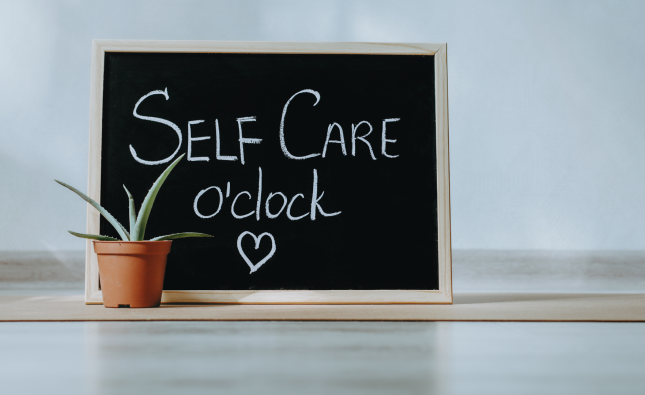
Are you looking for a way to boost your mental health while also achieving the perfect body? Look no further than a full-body workout! It turns out that physical exercise isn’t just good for toning muscles and losing weight – it can also have some surprising benefits for your brain. In this blog post, we’ll explore how working out can improve your mental health and give you tips on creating an effective fitness routine that will help you feel great inside and out. So let’s dive in and discover the beauty of brains and brawn!
The Link Between Physical and Mental Health
Your mental health is just as important as your physical health. In fact, the two are closely linked. Taking care of your body can help improve your mental well-being and vice versa.
Regular exercise is one of the best things you can do for your mental health. It releases endorphins, which have mood-boosting effects. It also helps to reduce stress and anxiety levels.
Getting enough sleep is another important factor in maintaining good mental health.Sleep helps to rejuvenate the mind and body and can help improve focus and concentration. It also reduces stress levels and helps to prevent anxiety and depression.
Eating a healthy diet is also crucial for good mental health. Eating foods that are nutritious and balance
The Benefits of Exercise on Mental Health
A full-body workout can do more than just make you look good – it can also boost your mental health. Exercise has been shown to improve mood, fight depression and anxiety, improve sleep, and increase self-esteem.
Mood: Regular exercise can help to reduce stress and tension, and promote relaxation. Exercise releases endorphins, which have mood-lifting effects.
Depression and anxiety: Exercise has been shown to be as effective as medication for treating mild to moderate depression. It can also help to reduce anxiety by providing a distraction from worried thoughts, and by releasing endorphins.
Sleep: Exercise can help to improve sleep quality by reducing the time it takes to fall asleep, and increasing the amount of deep sleep you get. Deep sleep is important for restoring energy levels, so if you’re struggling to get enough rest, a workout could be just what you need.
Self-esteem: Exercise can help to boost self-esteem by improving body image and fitness levels. When we feel good about our physical appearance and fitness levels, it can lead to increased confidence in other areas of life.
How to Incorporate Exercise Into Your Life
If you’re not used to exercising, it can be tough to find the motivation to start. But once you do, you’ll quickly see the benefits that exercise has on your mental health. Here are a few ways to incorporate exercise into your life:
1. Set realistic goals. Don’t try to do too much too soon – start with small goals that you know you can achieve. Maybe start by aiming for 20 minutes of exercise 3 times per week.
2. Find an activity that you enjoy. If you don’t enjoy what you’re doing, you won’t stick with it. There are endless possibilities when it comes to exercising – find something that works for you and that you can see yourself doing long-term.
3. Make it a habit. Once you find an activity that you enjoy, make it a regular part of your routine. Exercise should become something that you do without even thinking about it – just like brushing your teeth or taking a shower.
4. Set aside time for it. Just like any other important task in your life, you need to make time for exercise. Put it in your calendar and treat it like any other appointment – don’t miss it or put it off!
5. Be patient. Don’t expect to see results overnight – good things take time. Exercise is no different – give yourself some time to adjust and see the benefits
The Best Types of Exercise for Mental Health
When it comes to working out, there are endless options and programs to choose from. So, how do you know which type of exercise is best for your mental health?
Here are some of the best types of exercise for mental health:
1. Cardio Exercise
Cardio exercise is a great way to get your heart pumping and blood flowing. It can help to boost your mood and energy levels, and can also help to reduce stress and anxiety. Cardio exercise includes activities such as walking, running, biking, swimming, or kickboxing.
2. Strength Training
Strength training not only helps to improve your physical health, but can also have positive effects on your mental health. Strength training can help to increase self-esteem and confidence, and can also help to reduce stress levels. Strength-training exercises include weightlifting, bodyweight exercises, and resistance band workouts.
3. Yoga
Yoga is a popular mind-body practice that can help to promote relaxation and well-being. Yoga can help to improve sleep quality, reduce stress levels, and boost mood and energy levels. There are many different types of yoga available, so there is sure to be one that’s right for you!
4. Pilates
Pilates is another popular mind-body practice that combines elements of yoga and strength training. Pilates can help to improve posture, flexibility, muscle strength, and overall fitness level. Pilates
Conclusion
A full-body workout is an important part of a healthy lifestyle, as it can help to improve both your physical and mental health. By engaging in regular exercise and paying attention to proper nutrition, you will be taking steps towards improving your overall wellbeing. Not only will you look better on the outside but you’ll also feel better on the inside—and that’s what beauty and brains are all about! So grab those weights (or just take a walk) and start boosting your mental health today!










